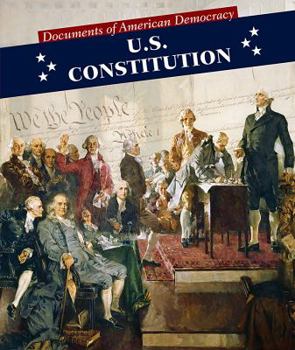La Constitucion de Estados Unidos (U.S. Constitution)
Select Format
Select Condition 
Book Overview
Customer Reviews
Rated 5 starsthe book I have been lookig for
When I read Ms Duane's My Enemy My Ally I found a author who treated Star Trek with some respect and mostly the Vulcans and Rihannsu (Romulans)with some much needed respect. Romulans have always been put on the back burner in favor of the Klingons (Example Star Trek 3TSFS was originally intended to have the Romulans as the foes) Ms Duane sheds some much needed INTELLIGENT background on the Rihannsu for me Star Trek Nemisis...
0Report
Rated 5 starsOne of the best ST novels
This was one of the books, along with "Spock's World" (also by Diane Duane) and several others, that made me a Star Trek fan. It's fascinating and compelling reading.All Star Trek novels are at heart fanfic, which can be a very bad thing, but which can also produce quite excellent results. This is an example of good fanfic---a creation of a totally original character (Arrhae, the human posing as a Romulan) who avoids becoming...
0Report
Rated 5 starsOne Of The Few Good Trek Books Out There
Finally a book that delves into the history of the mysterious Romulans. The story deals soley with Dr. McCoy, has he is inadvertantly captured by Romulans and taken to Romulous. McCoy is kept at a Romulan Cmdr's home until he can be tried for his crimes against the empire. While incarcerated, he learns about Romulan history, which acts as the main story in the book. We learn about how the Romulans were the off shoots...
0Report
Rated 5 starsExploring a wonderful strange new world
What was done for Vulcans in Spock's World, is now done for the Romulans. They are made real, given a culture and a history. Of all the Trek books deserving reprinting, this has to rank among the top. Duane takes us on a tour not of trite and worn plots or repetitive adventures, but of a new and alien culture. Truly here, as in most of her other novels, Duane creates and takes us on a tour of an interesting, richly...
0Report
Rated 5 starsWhat the Show Should Have Been Like!
A great pity this is out of print, as it's one of the best examples of real world-building in a Star Trek novel. It holds up as a work of pure speculative fiction, as very few other works set in this universe do. Instead of reading a juvenile history of some Terrestrial civilisation and crudely imitating it, as appears to be the practice of many Star Trek writers, Duane creates a complete and believable culture. If the...
0Report





















